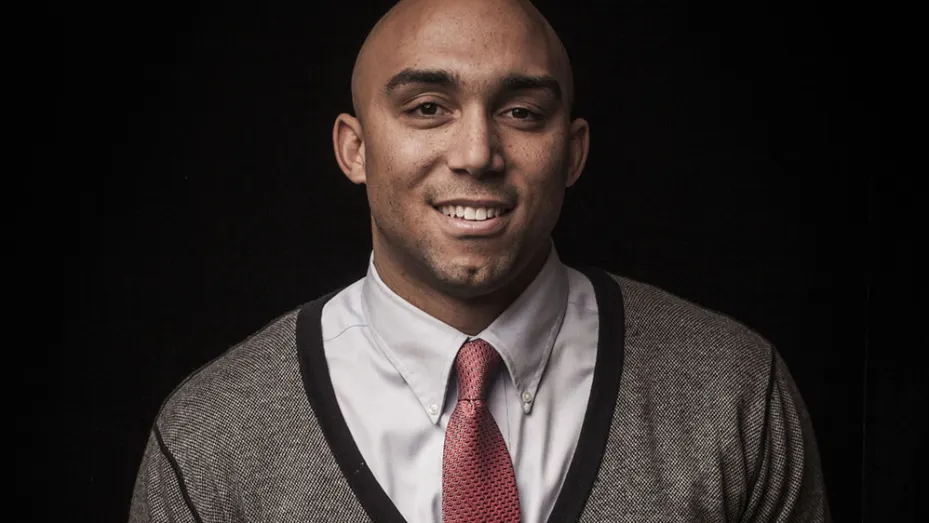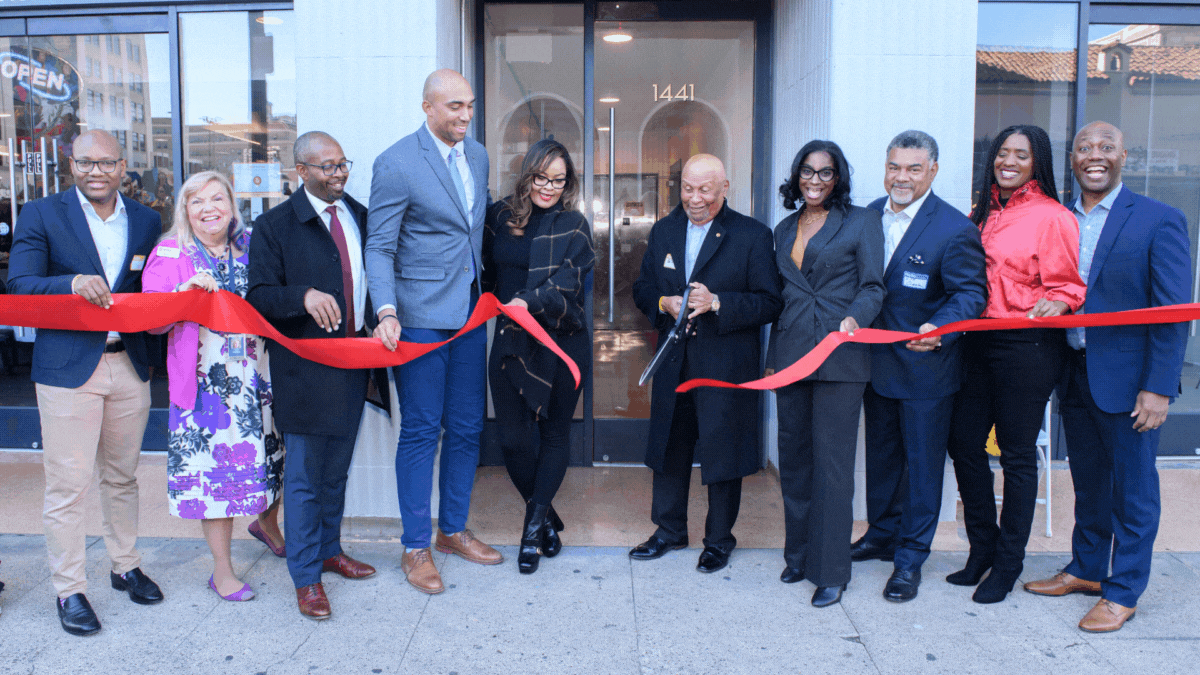
By: Ashton Jackson, Reporter at CNBC Make It
Date: Tuesday, December 20, 2022
Brandon Nicholson has always been an advocate for others.
As a child, the 39-year-old recognized that professional and educational opportunities for young, Black boys weren’t very accessible, unless you were well connected.
“My parents were trained as lawyers and were very much involved in school policies, taking me to school board meetings and parent association meetings as they’re trying to advocate for more resources,” he tells CNBC Make It. “So I got a lot of support.”
″[I remember] in the middle of the day, the counselor and the assistant principal called me out of my homeroom class to go to the office. They slid an application across the desk for a program called A Better Chance that supports young people of color applying to prep schools around the country. All I could think about was how many people didn’t get called into the office that day … How many people wouldn’t get access to these resources?”
This experience ultimately motivated Nicholson to “want to do something so that people didn’t have to get a special call to access something.”
Little did he know that down the road, he’d be the founding executive director of The Hidden Genius Project, a nonprofit organization dedicated to training and mentoring Black male youth in technology, entrepreneurship and leadership.
Through his organization, Nicholson and his team have supported the professional development of over 9,300 students, provided over 600,000 hours of direct training, obtained millions in grants, and made mentorship and tech skills accessible to Black boys across California and Detroit. On Dec. 2, The Hidden Genius Project hosted a grand opening ceremony for their new headquarters in Oakland, Nicholson’s hometown.
Here’s how Nicholson prepared for entrepreneurship, the lessons he’s learned along the way and his plans for 2023.
‘Almost nothing of consequence is done alone’
Though no one path to success is the same, one thing most established people have in common is that they didn’t do it alone. Whether it be friends, family or mentors, successful people usually have a personal board of directors that help them achieve their goals.
Nicholson says that his parents, wife and professors all played a role in his success. He also says that practicing “continual collaboration” in college was the “best” thing he did to prepare himself for entrepreneurship.
“The ‘stock art’ image of entrepreneurship in many of our minds is some representation of a single, enterprising individual exerting themselves dauntlessly to build a successful venture and eventually carry everyone else along with them,” he says. “In reality, nothing of consequence gets done alone, and the most dynamic entrepreneurs understand how to build together in ways that effect mutual gain.”
Nicholson also says he’s been able to “coalesce” with several other Black men who he encountered as a student at UCLA and UC Berkeley — one of them is even on his executive team at The Hidden Genius Project.
“I think my college leadership activities with organizations like Community House, Black Student Union, Black Men’s Awareness Group, and others were instrumental in me learning how to ‘step up and step back,’ all while progressing toward a bolder common goal.”
Be prepared to pivot
Having a plan for your career is a great way to hold yourself accountable for reaching your goals, but embracing and adapting to changes in that plan is equally important.
Nicholson says that growing up, he “rarely envisioned” himself in his current position, but he feels it was all “meant to be.”
“In the job I had just before this one, I was evaluating social impact programs, and generally understood that I would not want to be a nonprofit executive, as everyone in the role always seemed fairly stressed out,” he says. “The opportunity to lead The Hidden Genius Project was more intriguing, but honestly what precipitated the pivot was largely my inability to land a corporate role in the social impact/social responsibility space. I applied to all sorts of jobs, and got a bunch of ‘no’s’ at every stage throughout the process.
“Even though this wasn’t the role I initially felt called to take on, I love what I do now.”
The challenges of entrepreneurship
Nicholson says that impacting the lives of kids has been “extremely rewarding,” but business ownership isn’t a walk in the park.
“We have to make sure we stay solid on all the fun stuff like compliance, financial controls, and all those responsibilities that are innately challenging. We don’t ever want those things to get in the way of the work we do to support our communities and its young people.”
Nicholson also says that it can be hard to make sure that everyone’s needs are met and that the entire team “feels supported.”
“It’s a lot [of pressure] trying to make sure everyone can go to a home that’s comfortable for them. And if they’ve got people at home with them, those people can eat alongside them. But we also need everybody to do their jobs. So you’ve got to make sure that everyone here carries their weight, while we carry the weight of making sure they’ve got what they need to thrive.”
Looking ahead
 Nicholson and his team are stepping into 2023 with new headquarters — the culmination of all the dedication and hard work they’ve put into their cause.
Nicholson and his team are stepping into 2023 with new headquarters — the culmination of all the dedication and hard work they’ve put into their cause.
“We were once a small, fledgling organization without stable infrastructure, and so many other partners stepped up to take care of us and help us get to where we are today,” he shares. “I’m especially excited for the partners that serve young people to be able to bring their participants to such a beautiful, accessible, and safe space, and hopefully they will feel at home right away.”
“Ultimately, I hope we will have built a space that our community adopts as its own.”
With the organization expanding to Atlanta and Chicago next year, Nicholson is hopeful about “further growth toward not only a broader national presence but also toward deeper impact across all that we do.”
He also has a few personal goals for the new year.
“I look forward to resuming international travel with my family, as we work to re-discover the world away from the familiar confines of home. I also continue to explore a personal goal of sitting on the board of a for-profit entity, to allow me to develop new muscles and further enrich my leadership experiences.”



